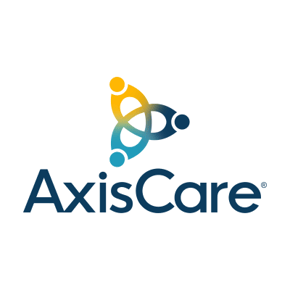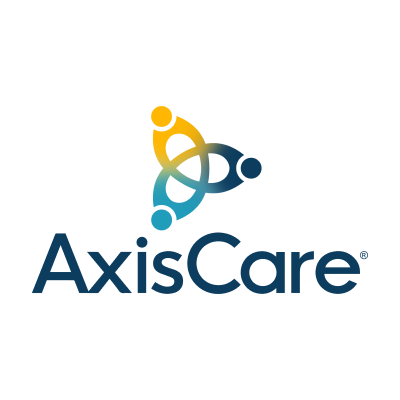This article is part of Benefits Broker Confessional, where we talk shop with the leading minds in HR and break down the latest in benefits.
The future of aging
Everyone knows that assisted living residences are expensive—on average, about $5,500 per month in the United States. Choosing to live out your golden years at home may come across as a savvy way to save money, but you’ll still need to be prepared for the costs associated with in-home care.
More than 90% of older adults say they’d rather age in place than in a senior’s home, which means you certainly won’t be alone if this is the path you choose. To meet this demand, integrated home care services are becoming more widely available, leaving you with plenty of options based on the care you might need.
Understanding the shift to in-home care
The population is aging more rapidly than ever. According to WHO, the number of people aged 60 years and older worldwide will double by 2050, so it's only logical that our values surrounding aging are being examined and reevaluated now. Couple that with the rising cost of in-facility care, plus advancements in technology that make in-home care safer and more accessible, and you have a revolution on your hands.
Maintaining independence for as long as possible and enjoying a high quality of life are also making their way to the forefront of people's decision-making.
Living independently is a fundamental aspect of aging with dignity. In-home care allows seniors to retain control over their daily routines, privacy, and personal choices.
What in-home caregivers can provide goes beyond physical assistance to include emotional support and companionship. Personal connections are essential for staying mentally sharp and emotionally well into our golden years. A consistent, caring presence from an in-home caregiver can be a major help in this area.
Preparing financially for senior care
Long-term care insurance: Is it right for you or your family?
Long-term care (LTC) insurance is designed for people over the age of 65 who have a chronic condition or disability that requires ongoing support. The associated services are not typically covered by regular health insurance, Medicare, or Medicaid. The exception being some skilled care following hospitalization for an injury or illness.
There are three main types of LTC insurance:
Traditional
A standard LTC insurance policy will cover expenses like home health care and assisted living. It’s treated like any other type of policy you may have: you will need to pay a premium to use your benefits and file insurance claims whenever you receive care.
Hybrid
Hybrid policies combine LTC insurance with traditional life insurance. It will cover any ongoing care as needed, or disburse a death benefit to your beneficiaries if you do not end up needing LTC.
LTC rider on life insurance
By adding an LTC rider (AKA add-on) to an existing life insurance policy, you can reallocate a portion of your policy’s death benefit to pay for any long-term care you may need down the line.
Your current and projected needs will ultimately dictate which policy you choose. Like other forms of insurance, LTC provides different levels of care and coverage. For example, your Daily Benefit Amount will determine the maximum amount per day that you can claim for long-term care services (typically varies between $50 to $500+).
Your Benefit Period dictates the duration of your coverage, which can range from 2 years or 3 years to 5 years, or even lifetime coverage. Other factors include your Elimination Period, which is how long you must wait until your coverage is activated (typically ranges from 0 to 180 days).
Benefits available to veterans
There are additional programs available to help veterans age comfortably. Since all veterans retire with VA benefits, many LTC insurance policies include provisions for coordinating with VA-provided services. This allows veterans to enjoy an expanded range of benefits while remaining in a familiar care system, including coverage for out-of-pocket expenses and co-payments.
How to access LTC benefits for veterans
Veterans interested in LTC insurance should review their policies with the help of an insurance agent or financial advisor. They can provide guidance on how to integrate VA benefits with LTC insurance with the goal of maximizing coverage options.
At the same time, veterans can coordinate with their VA representatives or case managers to explore how LTC insurance benefits can complement existing VA services. This conversation should cover specific care needs, service preferences, and available resources.
A guide to choosing in-home care services
In-home care services cover a very wide range of patient needs, from managing chronic conditions to remote monitoring and medication management. So, step one is to assess the senior's physical, emotional, and social needs in order to put their comfort and safety at the center of your decision-making.
Here's an overview of the different types of services available through home care agencies:
Personal care services
This category focuses on activities of daily living (ADLs), including assisting with personal hygiene, nutrition, and mobility needs.
- Bathing
- Dressing and grooming
- Toileting and incontinence care
- Mobility and transferring
- Eating and meal preparation
- Medication reminders
- Skin care and hygiene assistance
- Hair and nail care
- Exercise and physical therapy exercises
- Management of medical accessories (e.g., walkers, wheelchairs)
Healthcare services
This category focuses on skilled medical and therapeutic intervention that is more similar to the type of care you might receive in a clinic.
- Medication management and administration
- Wound care and dressing changes
- Chronic disease management
- Post-surgery or rehabilitation support
- Pain management
- Monitoring of vital signs
- Physical therapy and rehabilitation
- Occupational therapy
- Speech therapy
- Palliative and end-of-life care
Companion services
Beyond physical care, caregivers can also provide psychosocial support including socialization, and emotional assistance. Companionship can go a long way towards combating feelings of loneliness and isolation, promoting the senior's mental well-being.
Choosing the right provider
One of the best ways to choose a care provider is consulting your inner circle for recommendations. Barring that, the internet will be your best friend during this process.
Vet their credentials
As you conduct your research, your shortlist of in-home care providers should be vetted for proper licensing and insurance based on state regulations. Verify their credentials, certifications, and affiliations with relevant professional organizations. This information is usually available on their website, and if not, they should be happy to provide it if you contact them directly.
Meet virtually or in person
Once you've narrowed the options down, schedule a meet-and-greet call or consultation to assess the agency’s suitability. Prepare a list of questions that covers topics like caregiver qualifications, training procedures, care plans, emergency protocols, and communication channels.
If possible, ask to see a few sample care plans to ensure they can be tailored to meet your unique needs and preferences, and inquire about scheduling flexibility to make sure they can accommodate your lifestyle. It's also a great idea to visit the provider's headquarters to get a sense of their operations, professionalism, cleanliness, and overall atmosphere of the premises.
Understand the dollars and cents
The cost of in-home care services can be divided into different subcategories, including hourly rates, fees for additional services, and payment policies. To understand whether your financial situation can accommodate a given agency's services, ask about factors like payment options (i.e. private pay), long-term care insurance, Medicaid waivers, or other financial assistance programs.
The role of community and family support
Just like it takes a village to raise a child, it takes the same quantity of support and companionship to care for aging individuals. Not only can family members make the patient’s transition to at-home care a successful one, but the consistent presence of a friendly home health aide can also be a pillar of stability and social support.
Moving forward—together
People’s growing preference for in-home care represents a significant evolution in how we approach aging. Home care solutions honor the desire for independence and dignity, while also fostering stronger personal connections and enhancing quality of life.
Moving forward, and especially over the next decade, will be essential for individuals and families to proactively prepare for the aging process—and a major part of that preparation involves taking a close look at budgeting and finances. By leveraging the resources available to you and prioritizing open communication and planning, aging can truly become a time in our lives filled with connection, growth, and joy.







